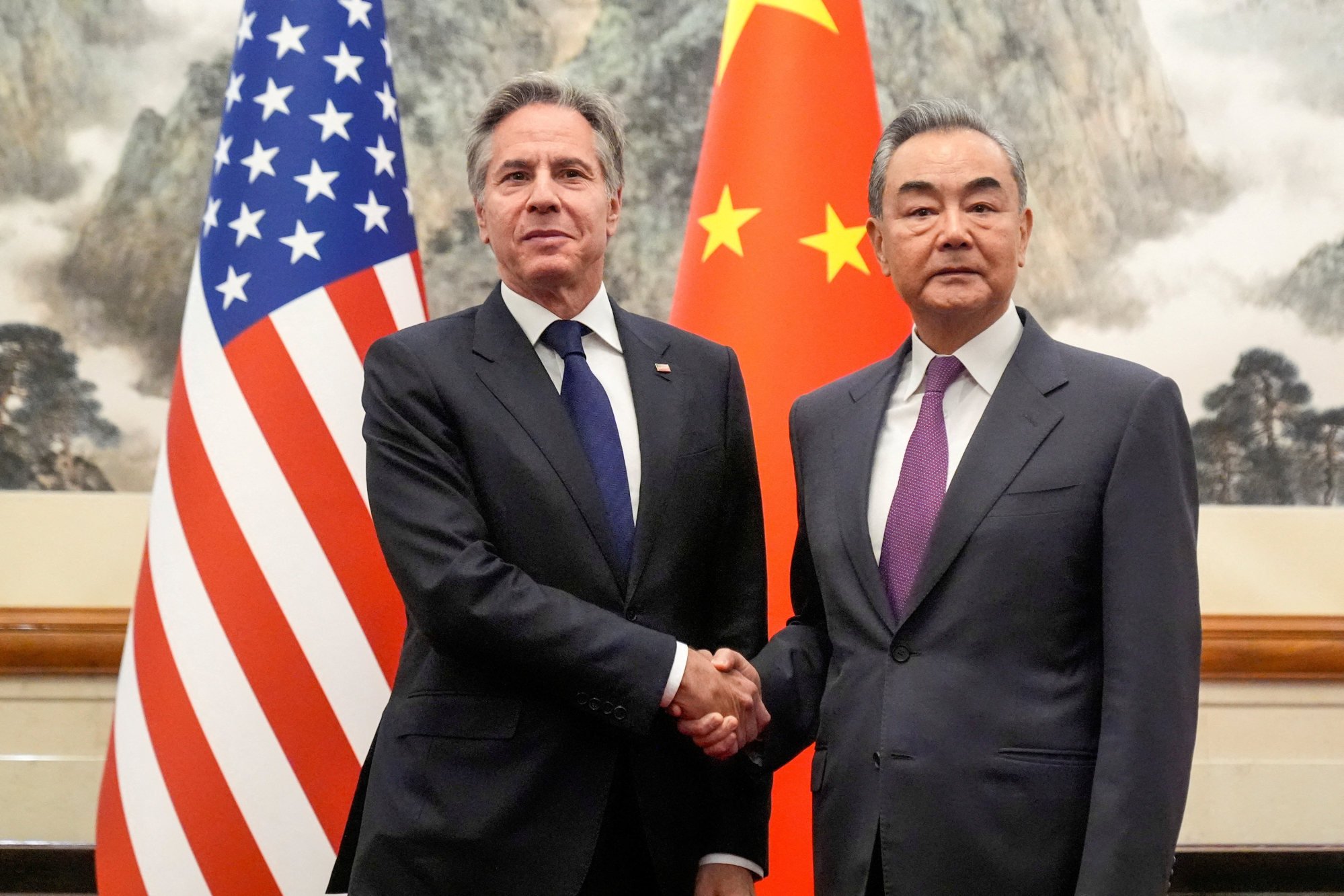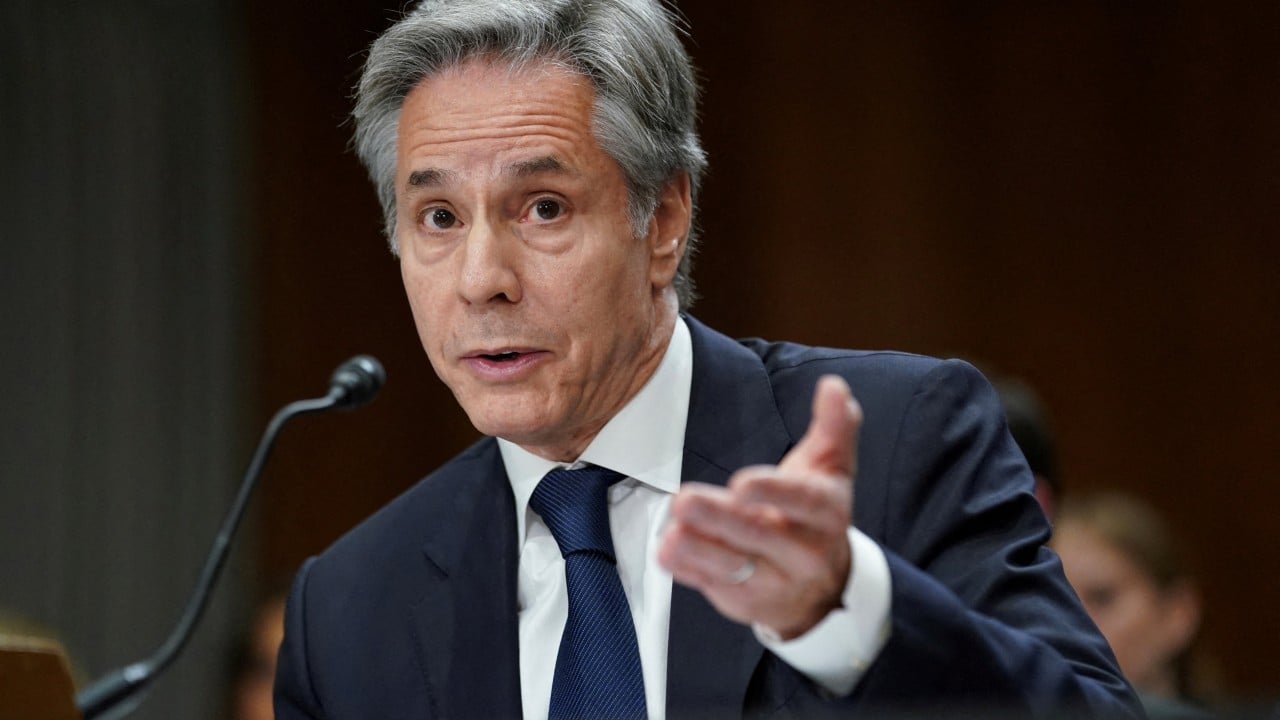US working with EU to counter China on its Russia support, overcapacity, say Antony Blinken and Janet Yellen
Two senior members of US President Joe Biden’s administration discussed on Tuesday cooperation with the European Union on countering Beijing, using additional sanctions to stymie Russia’s war against Ukraine and tariffs to deal with Chinese overcapacity.
US Secretary of State Antony Blinken said the administration would work with the EU to sanction Chinese companies supplying Russia with microelectronics and hi-tech products that support Moscow’s defence industry.
Hours earlier, US Treasury Secretary Janet Yellen said Washington and Brussels “will need to stay coordinated” to shield the two economies from “China’s industrial policy”.
Blinken, testifying at a hearing of the Senate Foreign Relations committee on Tuesday, said the US would continue to sanction Chinese entities identified as providing Russia with products that have military and civilian uses.
“We have already sanctioned more than 100 Chinese entities that we have identified that were engaged in providing dual-use products and other things that are on sanctions lists,” America’s top diplomat said. “We will continue to do that.”
“We are working to coordinate our efforts with European and other partners who are also aggrieved in fact, in many ways, even more aggrieved by this practice because it is a direct threat to them,” he continued.
“You cannot have China on the one hand professing to seek better relations with countries in Europe while on the other hand fuelling the greatest security threat to Europe since the end of the Cold War.”
Blinken described Russia as “churning out tanks, artillery and ammunition at a record pace” because of China’s “overwhelming support to Russia’s defence industrial base”.
The envoy raised the concern directly with Chinese President Xi Jinping and Foreign Minister Wang Yi during his trip to China last month, he said at the time.
Beijing’s strengthening ties with Moscow in the two-plus years since Russia invaded Ukraine have deepened Washington’s distrust towards the Asian giant.
During the visit to China, Blinken also said he “was extremely clear about our concerns” with Beijing’s leadership and that “we’ll have to see what actions follow from that”.
“I think China has demonstrated in the past, when it comes to Russia and Ukraine, that it can take positive action,” he added, referring to previous comments by Beijing warning against the use of nuclear weapons.

Sanctions on Chinese companies for supplying Russia is a top priority for both the Biden administration and the US Congress.
The US government imposed sanctions this month on 20 Hong Kong and mainland Chinese companies for their alleged roles in the development of Russia’s industrial base and military.
Last month US lawmakers introduced a bipartisan bill that would impose sanctions on any Chinese military firm that provides material support to Russia.
The Biden administration has made forging closer relations with its traditional allies and China’s neighbours a key part of its policy towards the world’s second-largest economy, even as it strives to uphold its stated commitment to high-level dialogue with Beijing.
In her remarks on the importance of the US-European alliance in Frankfurt, Yellen warned that excess industrial capacity in China threatened firms not only in the US and Europe but also in emerging markets globally.
“China’s industrial policy may seem remote as we sit here in this room, but if we do not respond strategically and in a united way, the viability of businesses in both our countries and around the world could be at risk,” she said.
Ursula von der Leyen, the European Commission chief, responded to Yellen’s comments with a mixed message, asserting a “different approach”.
“We share some of the concerns of our counterparts but we have a different approach, much more tailored approach,” von der Leyen said. “We have launched an investigation … according to WTO rules, so the investigation is still ongoing.
Should subsidies be found to exist, “then I can guarantee that the level of the duties we would impose” would correspond to “the level of damage”, she added.
While measures aimed at blunting China are generally supported in Congress, the White House approach of engaging Beijing’s leadership runs counter to the more hardline approach that many Republicans in Congress are demanding.
Additional reporting by Finbarr Bermingham in Brussels


